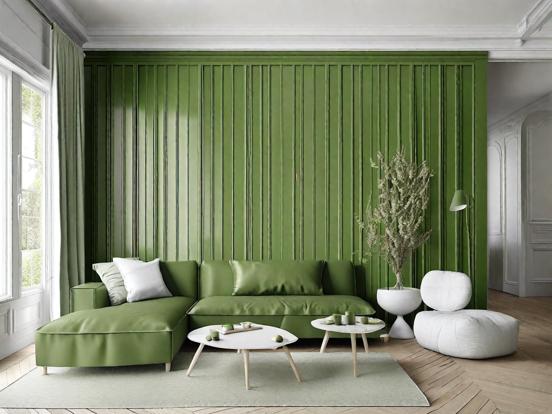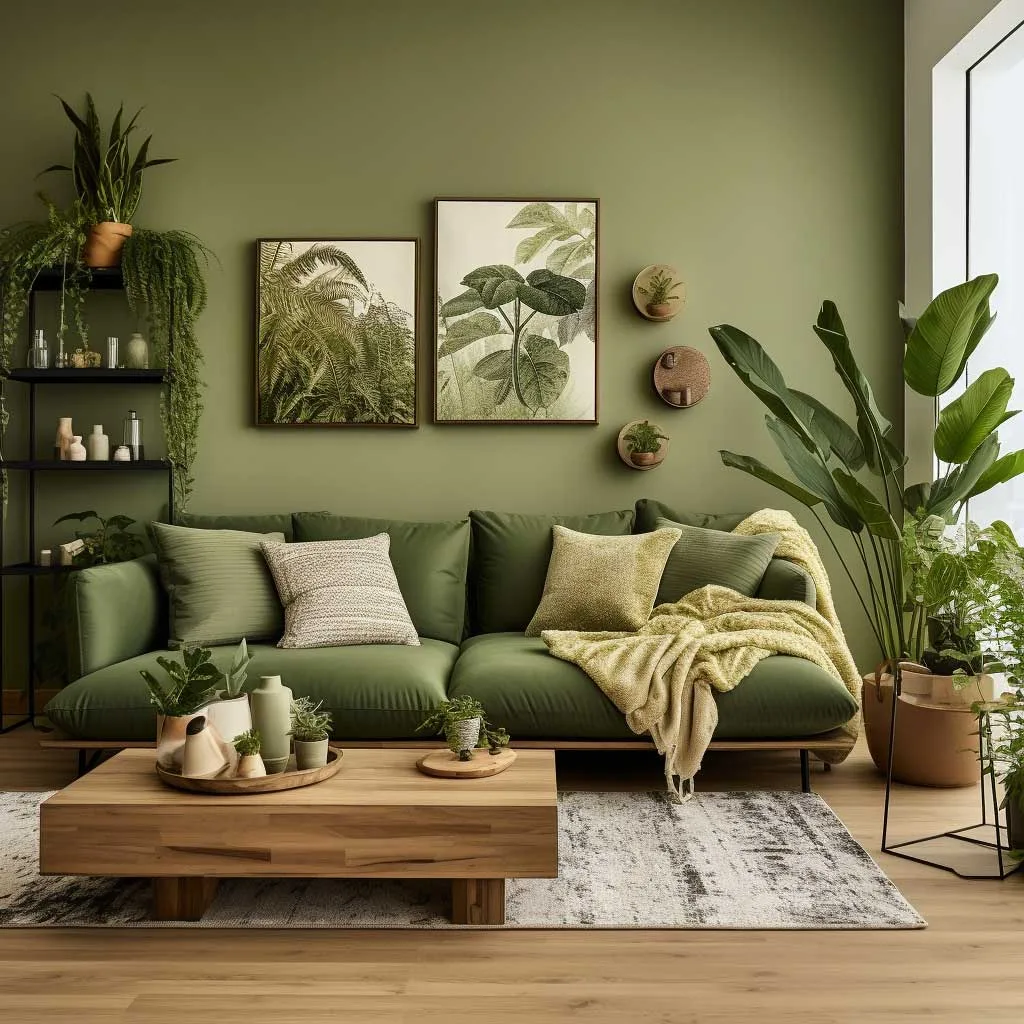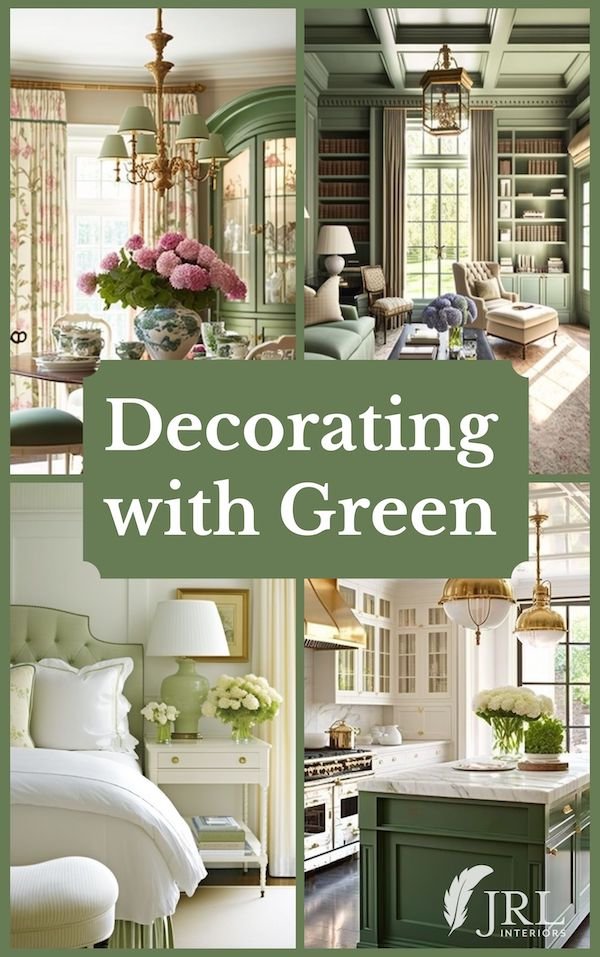Eco-friendly living room decor is both stylish and sustainable. You can make your space beautiful while being kind to the planet.
In today’s world, many people want to live more sustainably. Your living room is a great place to start. By choosing eco-friendly decor, you reduce your carbon footprint. Plus, you create a healthier home environment. Imagine a space filled with natural materials, energy-saving lighting, and recycled furnishings.
Not only does it look great, but it also feels good knowing you are making a positive impact. Ready to transform your living room? Discover practical and stylish eco-friendly decor ideas to inspire your next home project.

Credit: aihomedesign.com
Natural Materials
Natural materials bring a touch of nature into your living room. These materials are not only beautiful but also sustainable. They help reduce the carbon footprint of your home decor. Using natural materials creates a warm and inviting space. They are durable and can last for many years.
Sustainable Furniture
Sustainable furniture is a key part of eco-friendly living room decor. Choose pieces made from reclaimed wood or bamboo. These materials are renewable and reduce waste. Look for furniture brands that use non-toxic finishes. This keeps harmful chemicals out of your home.
Opt for quality over quantity. A few well-made pieces can make a big impact. Think about timeless designs that won’t go out of style. This way, you won’t need to replace your furniture often. Supporting local artisans can also be a great option. They often use sustainable practices and materials.
Organic Textiles
Organic textiles add comfort and style to your living room. Choose fabrics like organic cotton, linen, and wool. These materials are grown without harmful pesticides. They are better for your health and the environment. Organic textiles come in many colors and patterns.
Use organic textiles for your sofa covers, cushions, and curtains. They are soft and breathable. This makes your living room cozy and inviting. Don’t forget to look for eco-friendly dyes. These dyes are less harmful and still offer vibrant colors. Mixing and matching different textures can create a unique look.
Energy Efficiency
Creating an eco-friendly living room starts with focusing on energy efficiency. Making small changes can lead to big savings. It can also reduce your carbon footprint. By choosing the right lighting and devices, you can make your living room more sustainable.
Led Lighting
LED lighting is a great way to save energy. These bulbs use less power than traditional incandescent bulbs. They also last longer, reducing the need for frequent replacements. You can choose from a variety of styles and brightness levels. This makes it easy to find the perfect lighting for your living room. Using LED lights can cut your electricity bill and help the environment.
Solar Powered Devices
Solar powered devices are another excellent choice for an eco-friendly living room. These devices use energy from the sun, which is a renewable resource. You can find solar powered lamps, chargers, and even speakers. They are easy to use and can reduce your reliance on fossil fuels. By integrating solar powered devices into your decor, you contribute to a greener planet.
Indoor Plants
Indoor plants are a fantastic way to bring nature inside. They improve the air quality and add a touch of green to your living space. Whether you have a large room or a small corner, indoor plants can make a big difference.
Air Purifying Plants
Air purifying plants help cleanse the air by removing toxins. They are perfect for creating a healthier home environment. Some popular choices include spider plants, peace lilies, and snake plants. These plants not only look good but also work hard to keep the air fresh.
Spider plants are easy to care for and grow quickly. Peace lilies thrive in low light and bloom beautiful white flowers. Snake plants are tough and can survive in almost any condition. Adding these plants to your living room can boost both the look and feel of the space.
Vertical Gardens
Vertical gardens are great for small spaces. They allow you to grow plants on walls, saving floor space. Vertical gardens add a unique and modern touch to your living room. You can use shelves, hanging pots, or even a special wall planter.
Choose plants that grow well in limited soil. Herbs, ferns, and small succulents are excellent options. Vertical gardens create a stunning visual effect and make your living room feel like an oasis. They also offer an opportunity to grow your own herbs for cooking.

Credit: artfasad.com
Upcycled Decor
Upcycled decor provides a perfect way to create an eco-friendly living room. It involves repurposing items that would otherwise go to waste. This not only saves money but also reduces environmental impact. Upcycled decor allows you to add a unique touch to your living space. Let’s explore some engaging ideas under DIY Projects and Secondhand Finds.
Diy Projects
DIY projects let you transform old items into stylish decor. Create a coffee table from a reclaimed wooden pallet. Paint it in your favorite color for a fresh look. Turn old glass jars into decorative vases. Use them to display fresh or dried flowers. Make coasters from wine corks glued together. These add a rustic charm to your living room.
Repurpose old picture frames into wall art. Fill them with fabric scraps, pressed flowers, or family photos. Create a bookshelf from an old ladder. Paint or stain it to match your decor theme. The possibilities are endless with DIY upcycling. It’s fun, creative, and eco-friendly.
Secondhand Finds
Secondhand finds can be treasures waiting to be discovered. Visit thrift stores, garage sales, or online marketplaces. Look for furniture with good bones. A little paint or new fabric can make them look new. Antique shops often have unique items with character. Old trunks or suitcases can double as storage and coffee tables.
Vintage mirrors add elegance and make rooms feel larger. Secondhand shops often have interesting lighting fixtures. A new shade or a bit of polish can work wonders. Look for textiles like blankets and rugs. They can add warmth and color to your living room. Mixing old with new creates a balanced and inviting space.
Upcycled decor adds charm and individuality to your living room. It’s an affordable and eco-friendly way to decorate. Plus, it’s a great way to showcase your creativity.
Non-toxic Paints
Choosing the right paint is essential for an eco-friendly living room. Non-toxic paints reduce harmful chemicals in your home. They contribute to a healthier environment. Here are some options to consider:
Low Voc Options
Low VOC (Volatile Organic Compounds) paints emit fewer toxic fumes. These paints improve indoor air quality. They are safer for families and pets.
Here’s a table that highlights some popular low VOC paint brands:
| Brand | Features |
|---|---|
| Benjamin Moore Natura | Zero VOC, Green Seal Certified |
| Behr Premium Plus | Low odor, Greenguard Certified |
| Farrow & Ball | Low VOC, Eco-friendly formulas |
Natural Dye Techniques
Natural dye techniques use ingredients from nature. These paints are free from harmful chemicals. They provide beautiful, unique colors.
Consider these natural dye sources:
- Clay and Earth Pigments: Offer rich, earthy tones.
- Plants and Vegetables: Spinach for green, beets for red.
- Charcoal: Creates deep black shades.
Using natural dyes supports sustainability. It is a creative way to achieve eco-friendly decor.

Credit: www.shelterness.com
Eco-friendly Flooring
Choosing eco-friendly flooring for your living room helps the environment. It also adds unique style to your space. Sustainable options are now more accessible than ever. Let’s explore two popular choices: bamboo flooring and reclaimed wood.
Bamboo Flooring
Bamboo flooring is a sustainable choice. Bamboo grows quickly, making it renewable. This type of flooring looks stylish and modern. It is also durable and easy to maintain.
Bamboo floors come in many colors and finishes. This means you can match any decor style. They are also resistant to moisture, which is perfect for living rooms. Enjoy a green and elegant floor with bamboo.
Reclaimed Wood
Reclaimed wood gives your living room a rustic charm. This wood comes from old buildings, barns, and factories. Using reclaimed wood reduces waste and saves trees.
Each piece of reclaimed wood has a unique history. It adds character and warmth to your living room. The wood often has weathered textures and rich colors. These features make your space feel cozy and inviting.
Reclaimed wood flooring is also durable and long-lasting. It can be sanded and refinished multiple times. This keeps your floors looking beautiful for years.
Minimalist Design
Minimalist design embraces simplicity and functionality. It focuses on creating a serene and clutter-free environment. The goal is to make spaces feel open and airy. This design style often uses a neutral color palette and clean lines. It emphasizes quality over quantity. Each item serves a purpose and adds to the overall aesthetic. This approach can make your living room a calm and inviting space.
Clutter-free Spaces
Keep your living room free of unnecessary items. Store away things you don’t use daily. Use hidden storage solutions like ottomans or coffee tables with compartments. Open shelves can display a few favorite pieces. Avoid overcrowding them. Less is more in minimalist design. This creates a sense of peace and order. It also makes cleaning easier.
Functional Furniture
Choose furniture that serves multiple purposes. A sofa bed can be useful for guests. A coffee table with storage can hide magazines or remote controls. Look for pieces with clean lines and simple shapes. Avoid overly ornate furniture. Keep the focus on functionality. This makes the room feel more spacious. It also ensures every piece has a purpose. This aligns with the minimalist philosophy.
Water Conservation
Creating an eco-friendly living room is more than just stylish decor. It involves thoughtful practices that help save our planet. Water conservation is one of these important practices. By integrating smart water-saving ideas, you can make a big difference. Let’s explore two effective methods: Low Flow Fixtures and Rainwater Harvesting.
Low Flow Fixtures
Low flow fixtures are essential for any eco-friendly living room. These fixtures reduce water usage without sacrificing performance. You can find low flow faucets, showerheads, and even toilets. They help save water and reduce your utility bills.
Here are some benefits of low flow fixtures:
- Water Efficiency: Use up to 60% less water.
- Cost Savings: Lower water and energy bills.
- Environmental Impact: Reduce your carbon footprint.
Installing these fixtures is simple. Most can be done without professional help. Enjoy a sustainable living space with minimal effort.
Rainwater Harvesting
Rainwater harvesting is another effective way to conserve water. It involves collecting rainwater and using it for various purposes. This method is beneficial for the environment and your wallet.
There are two main types of rainwater harvesting systems:
| System Type | Description |
|---|---|
| Direct Collection | Collects water directly from the roof into barrels or tanks. |
| Indirect Collection | Uses a more complex system with filters and pumps. |
Both methods provide clean water for non-potable uses. You can use harvested rainwater for:
- Watering plants.
- Cleaning floors and surfaces.
- Flushing toilets.
Start with a simple barrel system. Gradually upgrade to more advanced setups. Contribute to a greener world, one drop at a time.
Frequently Asked Questions
What Are Some Eco-friendly Decor Materials?
Eco-friendly decor materials include bamboo, reclaimed wood, recycled glass, and organic cotton. These materials are sustainable and reduce environmental impact. They add a natural, stylish touch to your living room.
How Can I Reduce Waste In Home Decor?
You can reduce waste by upcycling old furniture, using vintage pieces, and opting for durable, high-quality items. Choose decor that can be easily recycled or repurposed.
Are Eco-friendly Decor Items Expensive?
Eco-friendly decor items can vary in price. Some sustainable options are affordable, while others may be pricier. Investing in quality, sustainable decor can save money in the long run.
What Plants Are Best For Air Quality?
Plants like snake plants, spider plants, and peace lilies are great for improving indoor air quality. They help remove toxins and provide a fresh atmosphere.
Conclusion
Creating an eco-friendly living room doesn’t have to be difficult. Small changes make a big impact. Choose sustainable materials and energy-efficient lighting. Opt for second-hand or upcycled furniture. Houseplants improve air quality and add beauty. These simple steps help the planet and create a cozy space.
Start today and enjoy a greener living room. Your efforts make a difference.

Sarah Bennett is a passionate home decor enthusiast and the creative mind behind ConsumerDecor. With a love for design and an eye for detail, she shares inspiring ideas, emerging trends, and practical tips to help readers create beautiful, functional living spaces. Sarah believes that every home deserves a touch of style, no matter the budget.





